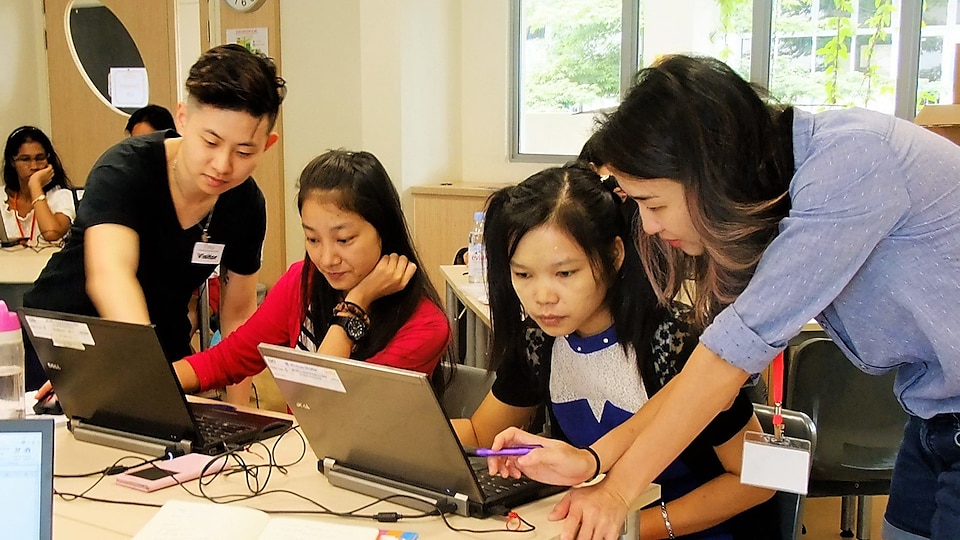
By volunteering, you pledge to give your time, energy and skills to someone else for free. This can be hard in this hectic day and age. But with a little bit of planning and organizing, you can free up several hours each week to help out those who need it but can’t afford it, or those who aren’t capable of doing it for themselves for any number of reasons.
During those short hours, you’ll discover that volunteering is so much more than just helping others; it’s also a great way to improve your health.
When you donate your time and skills to others, you don’t realize all the emotions involved in the process. It pulls you in and positively engages you in ways you can’t imagine.
Whether it’s helping out a local charity, supporting your favorite cause or working at a homeless shelter, you’ve made the choice to make a difference. And that feeling of knowing that you, as an individual, have it in you to bring some goodness into the world is just the tip of the iceberg when it comes to the benefits of volunteering.
To begin, start by asking yourself what your skills are and how you can use them to benefit others. Picking the right place to donate your time can be tricky. Try to visit different venues to get a feel for the staff and how they operate. Once you find the right place that matches your preferences and skill sets, you’ll be able to make the most of an exciting, fun experience.
How Volunteering Can Boost Your Mental And Emotional Health
– Become more socially connected
This is different from being connected on social media with those who can’t see or hear you. When you volunteer, you get to meet new people and actually interact with them one-on-one, listen to them and be heard yourself. You can’t get that online.
You also get to connect with fellow volunteers who share the same values and ideals as you. You get to build long-lasting relationships which are a major factor in your overall health and state of happiness.
It’s important to remember that communities are made up of many cultures, beliefs, religions and values, and coming together as one help overcome these differences.
– Boost your self-confidence
Working with others, and helping them out means you’re a valued member of a team; your opinions and thoughts are listened to and respected. This gives you a sense of identity and fulfillment that you’re really making a difference.
Add to that the sense of fulfillment of having goals and achieving them through hard work and persistence. It’s a great confidence booster.
– Reduce stress
Stress is a normal part of life, but in recent rates, stress rates have been on the rise resulting in a slew of physical and mental complications. It’s been cited by the World Health
Organization as the health epidemic of the 21st century because it’s unrelenting and detrimental. But the good news is that there are things we can do to offset these high levels of stress in our lives, one of them is by helping others out.
When you connect with other people – and, yes, animals too – can improve mood, and thereby, reduce stress and anxiety. Having this constant support system makes you feel safe. It reduces fear and keeps you mentally stimulated. Plus, it keeps your mind off problems that may trigger concern and anxiety.
– Give you a sense of purpose
Having a goal to work towards is extremely fulfilling. You have a plan; you work with others to achieve it, no matter how long it takes. You’re part of a team.
Add to that the satisfaction of helping others and actually making a difference, and you get a sense of value that few things in life provide, only by offering kindness, support and empathy.
– Learn valuable job skills
Believe it or not, volunteering can add zing to your resume. It’s a great way to utilize what you’re already good at, or, better yet, give you the opportunity to develop a new skill.
For example, you can learn how to manage a fundraiser by learning budgeting skills, along with organizing and planning. You can also develop your interpersonal and management skills, as well as many more.
– Improve your physical health
No matter what your definition of happiness is, it’s safe to say that when you’re happy you don’t fall into bad habits like eating junk foods or abusing alcohol and drugs. You have a better image of who you are and what you want to do with your life.
It also boosts your immune system, so you don’t get sick as often. Your energy levels soar and you tend to want to eat better and exercise more which results in improved health overall.
If each one of us volunteered just a small portion of their time each week, imagine what our lives would be like; there’d be more empathy and less judging.
Not only that but we ourselves will be happier, healthier and more fulfilled individuals. That makes for a more balanced, more productive community where everyone works together to bring fulfillment and prosperity.
– Scott Blessing

